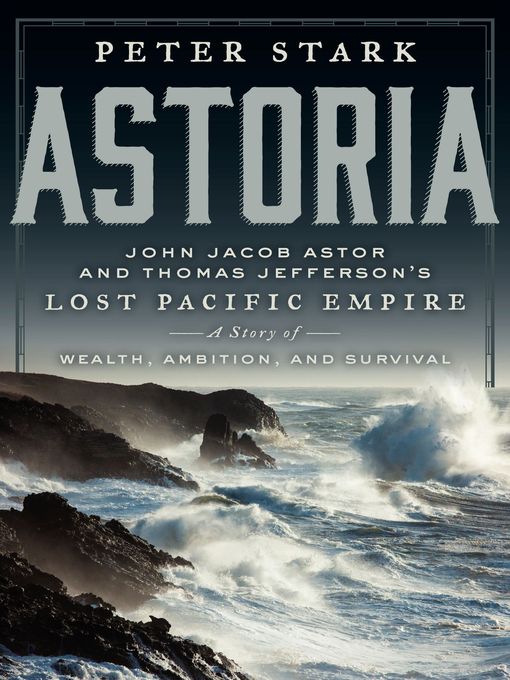
Astoria
John Jacob Astor and Thomas Jefferson's Lost Pacific Empire: A Story of Wealth, Ambition, and Survival
کتاب های مرتبط
- اطلاعات
- نقد و بررسی
- دیدگاه کاربران
نقد و بررسی

December 23, 2013
At the dawn of the 19th century, America's Eastern coast had largely been settled, but the West remained largely uncharted and undeveloped. In 1810, entrepreneur John Jacob Astor proposed to Thomas Jefferson that Astor start a trading colony in what is now Oregon. In a page-turning tale of ambition, greed, politics, survival, and loss, historian Stark (The Last Empty Spaces) chronicles Astor's mad dash to establish a fur-trading company, Astoria, which would capture the territory's wealth and allow Jefferson to inaugurate his vision of a democracy from sea to shining sea. Astor sent two parties to build his empire, one by sea and one by land. They were to reach the Pacific coast at the same time, but dissension among the leaders of the overland party, as well as Indian attacks and other logistical difficulties, kept it from arriving according to plan. The sea party aboard the Tonquin was scarcely more fortunate. The establishment of the short-lived Astoria coincided with the War of 1812, and in October 1813, Duncan McDougall sold out the trading post to the British. Stark eloquently concludes that though Astoria failed, Astor's vision and drive pushed settlers to establish a Western presence, altering the shape of the American nation.

March 1, 2014
Stark (The Last Empty Places) vividly writes of fur trader John Jacob Astor's capitalist quest, put forth in 1810, to establish an American colony on the northern Pacific coast at the mouth of the mighty Columbia River. His grand plans to connect an Atlantic-based America to the trade routes of the Pacific were encouraged by President Jefferson; both men wanted an American presence firmly established in the continental Northwest in competition with the British fur explorations of David Thompson. Stark's strong familiarity with the terrain of the Rocky Mountain states and the use of the explorers' journals serve him well in his reconstruction of the expedition's overland journeys along the Snake River of Wyoming, Idaho, and Oregon. His fascinating account of the journey's fast sailing ship, the Tonquin, headed to Oregon by sea, provides a dramatic narrative of power struggles with the coastal Native Americans. VERDICT Stark's book complements Larry Morris's The Perilous West, which concentrates on the establishment of the Oregon Trail. Lay and undergraduate readers will appreciate this title that never loses its focus on the founding of Astoria as the prime objective within Astor's push west. [See Prepub Alert, 9/9/13]--Nathan Bender, Albany Cty. P.L., Laramie, WY
Copyright 2014 Library Journal, LLC Used with permission.

























دیدگاه کاربران